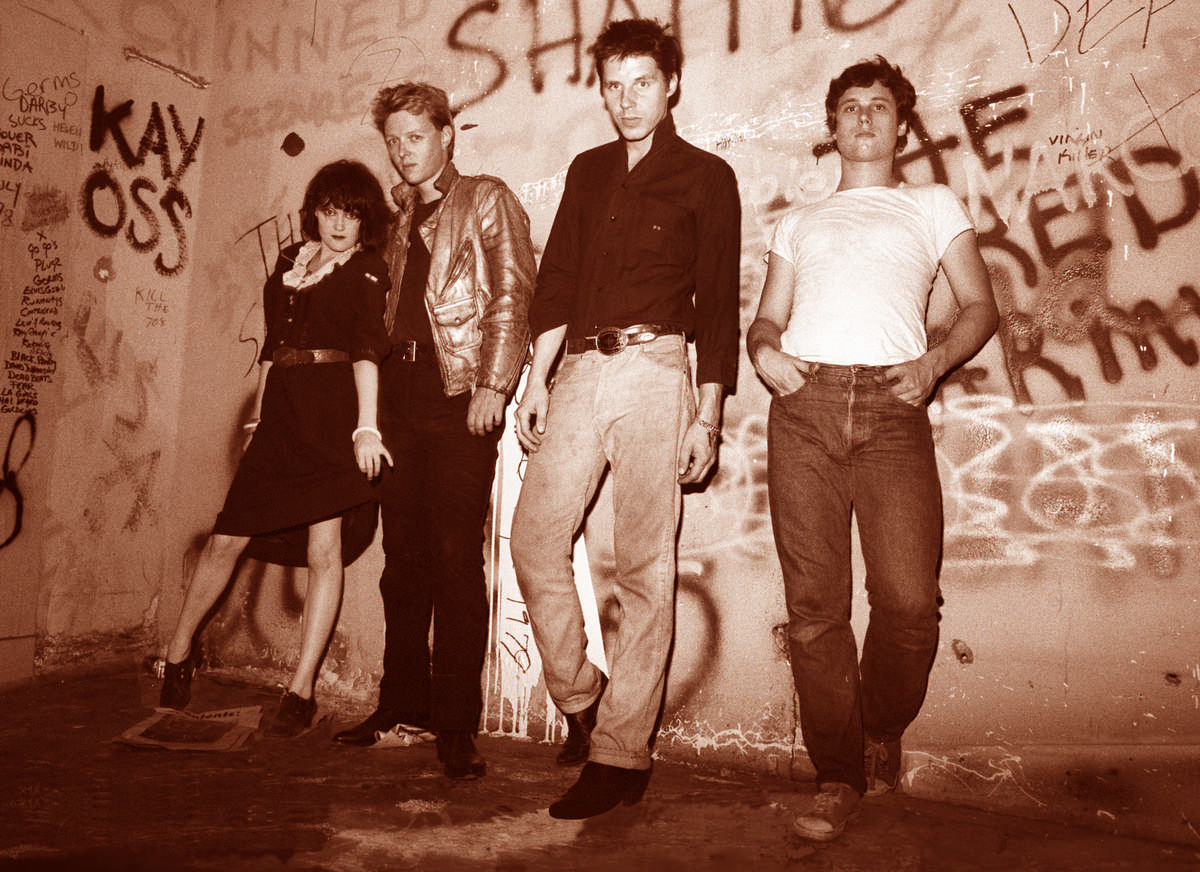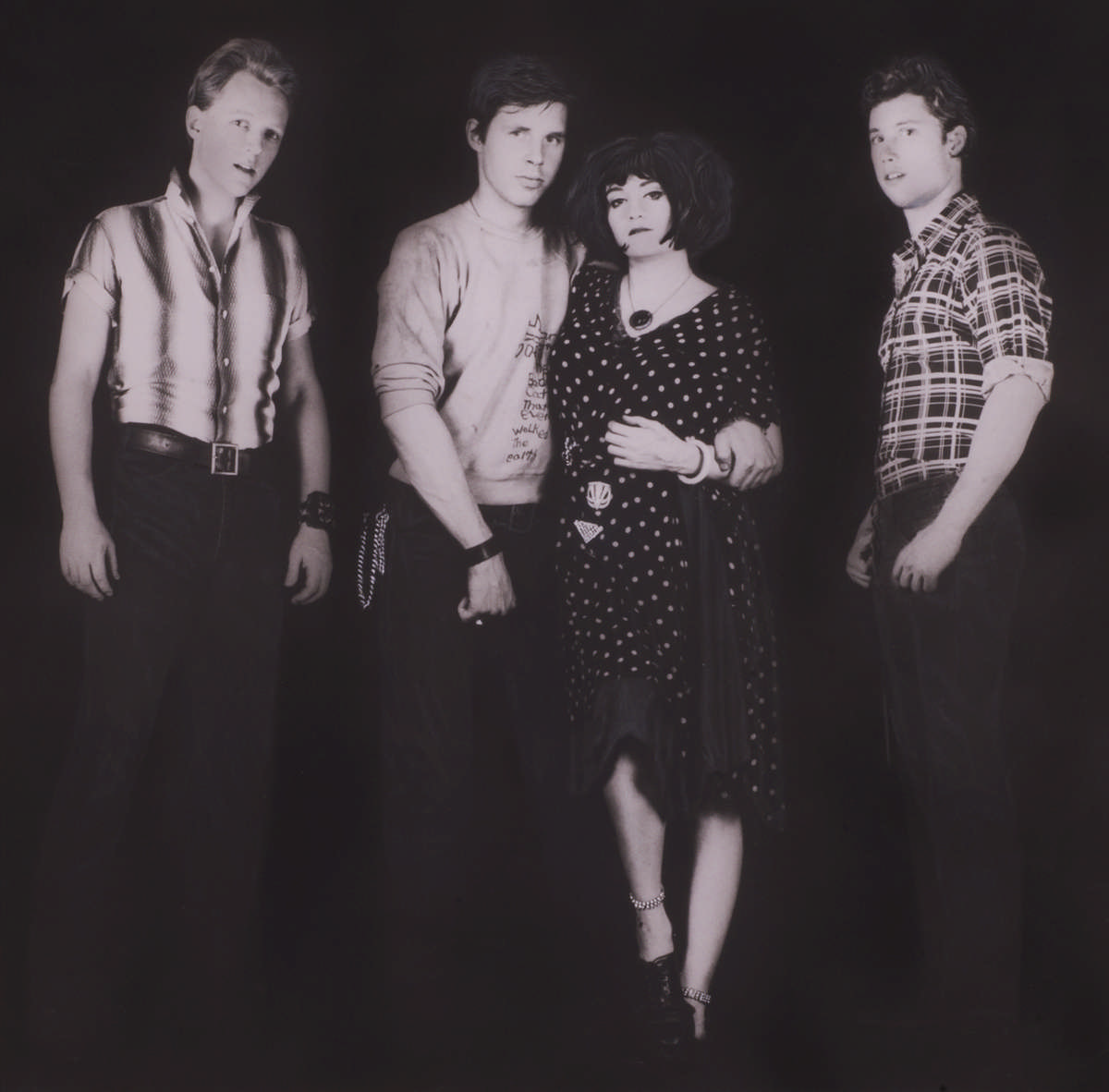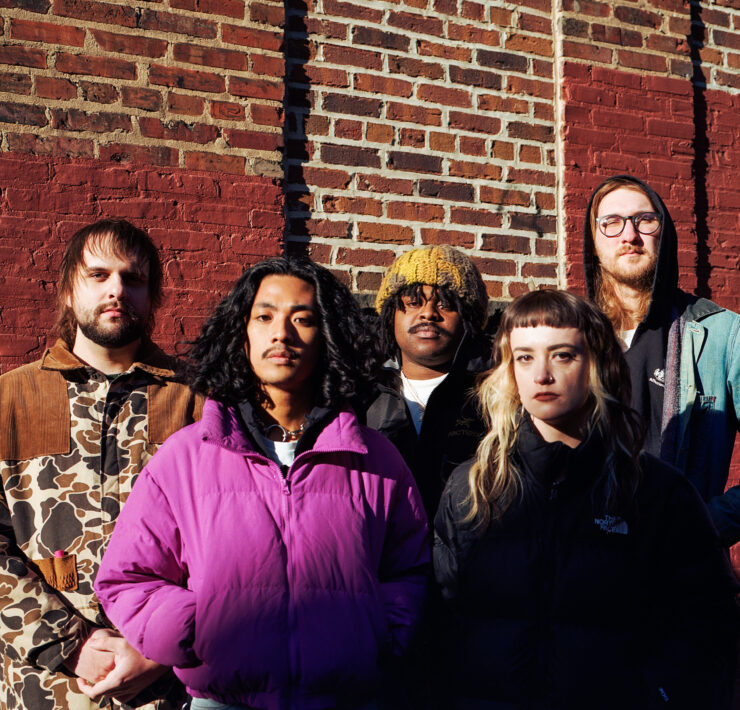X Marks the Spot

An Interview with Exene Cervenka of X
There are only so many bandmates who can say they are still at it after more than 40 years. Far fewer, as you can imagine, when it comes to bands from the first wave of the punk era. Even less in terms of American punk bands. But that’s where X is different than the rest.
Formed in Los Angeles in 1977, X (Exene Cervenka, John Doe, Billy Zoom, and D.J. Bonebrake) became the face of Southern California punk in two distinct ways. X’s 1980 debut album Los Angeles (Fat Possum), the first of the band’s albums to be newly reissued, was produced by Ray Manzarek (ex-Doors) and received much critical acclaim.
The band was also featured prominently in the 1981 Penelope Spheeris music documentary The Decline of Western Civilization. Albums that followed, including Wild Gift(1981), Under the Big Black Sun (1982), and More Fun in the New World (1983) were also well-received.
Fast-forward to 2019. X is continuing their 40th anniversary tour which includes concert dates with Violent Femmes, The Damned, Squeeze, and others. We got to speek with Exene about the band, touring, and being queer in music.
Around the same time that the series of X album reissues are being released, queercore band Team Dresch is also having its albums reissued. Do you see a connection between what you do with X to the queercore and riot grrrl scenes?
I haven’t heard Team Dresch in a long time! That’s great! Our records have never been out of print, ever, not for a day. They’ve been in print on one label or another. These are reissues on a new label, Fat Possum, who are great, by the way. We’ve just been going and going. If there’s any kind of similarities with those bands, all these people are tough. All the gay bands are tough; that movement is tough. And it’s tough people with a sense of humor.
I think that’s kind of lacking with younger people now, because they don’t have much hope. It’s impossible to move out. It’s impossible to buy a car. It’s impossible to pay insurance. It’s impossible to rent a place. In the old days, we could get a place in San Francisco, in the Mission, for 400 bucks a month. I think it’s harder for people now. I’d like to see how younger people relate to all those bands from that time. If they get it, or if everything has to be political. As opposed to, in the old days, just being alive and being yourself. All you had to do was walk down the street.

As a way of making a political statement?
Yes, just by the way you dressed or you felt about things. You had to be tough, but you also had to have a sense of humor.
X’s 1980 debut album Los Angeles has been newly reissued on Fat Possum Records, and X received considerable critical praise which continued through albums such as 1981’s Wild Gift and 1982’s Under the Big Black Sun. What did that kind of attention mean to you and the members of the band?
It was great to have that. I think a lot of that had to do with [ex-Doors member and Los Angeles album producer] Ray [Manzarek] helping us get a foot in the door. People were paying attention to us and to the scene a little bit before that. It was great, because it vindicated the contempt that a lot of people had for Los Angeles. They thought the music scene was just The Knack, and that everybody had swimming pools, and we were all rich kids, which was, of course, not true at all. It was a vindication for the scene in general.
I quickly realized at that young age, I just wanted to write and have fun. On the spectrum of reviews, and I think we were written about more than just about anybody, on the one side there were horrible, negative [write-ups], “You shouldn’t even have been born. You ruined everything.” [To positive reviews such as] “You’re geniuses. You’re the greatest band since The Doors.”
Somewhere in the middle is the truth which cancels out the rest. The truth is, we’re great musicians, I think, and we write pretty great songs. We’re strong-willed and funny and smart and literate and a lot of people like us. We’re probably never going to be a great commercial hit, but we’re still alive. That’s all you can say in the end. “Did you go out there and give it your best shot and do some good things?”
I’ve always maintained that one of the things that separated X from other U.S. punk bands of the time was the literary nature of the band’s song lyrics. Please say something about your influences as a poet/lyricist and the process of turning your words into songs.
The biggest thing for me was my sister first as an influence and then moving to California and going to Beyond Baroque (Literary Arts Center), where I learned a lot about writing, and which I’m still involved with today 43 years later, and then meeting John [Doe].
I dropped out of high school. I didn’t read a lot of poetry. I loved Charles Bukowski, James M. Cain, Raymond Chandler, Flannery O’Connor, [John] Steinbeck. That’s where the literary part comes from. Of course, John, also. He read a lot of existential writing and all kinds of poetry. He’s a lot more educated than I am. I think what we really liked was the idea that you can get in a car and drive down any road in America and find a story.
We did that in real life. We did that when we were on tour. We did that when we were in Hollywood, and we still do, to some extent, although a lot of that has vanished. There’s still that idea that there’s a working man out there sitting at a bar having a shot and a beer. What’s he thinking about? What’s he going home to? Maybe there’s a woman behind the bar. What’s she thinking? To me, that’s never boring.
I’m into that kind of short story and vignette in a song as opposed to just ranting and railing against something. The other thing is that I wanted to write songs about America, as I was seeing it dying in the early 80s. The factories were closing, and manufacturing was going away. You could see these cities starting to die, and it was horrible. Instead of saying, “Reagan’s an asshole, and I hate him,” which I didn’t necessarily want to say anyway, there’s a timelessness to the songs. I think timelessness is what makes good writing. Even if you aren’t familiar with the time or the place, it should still be timeless enough that you can put yourself in the story and get it. If you can do that in three minutes, wow, that’s great!
Is there any chance that X may someday return to the recording studio and release a new album?
We’ve recorded five songs. One is a completely new song to which I wrote words and John wrote music. The others were older songs that we never put on a record or one song that we completely redid. We have five songs. When we get a little time, what we’ve been talking about
doing is going in and doing three or four more. Taking our time. I mean, what’s the rush now?
Photo by Frank Gargani










